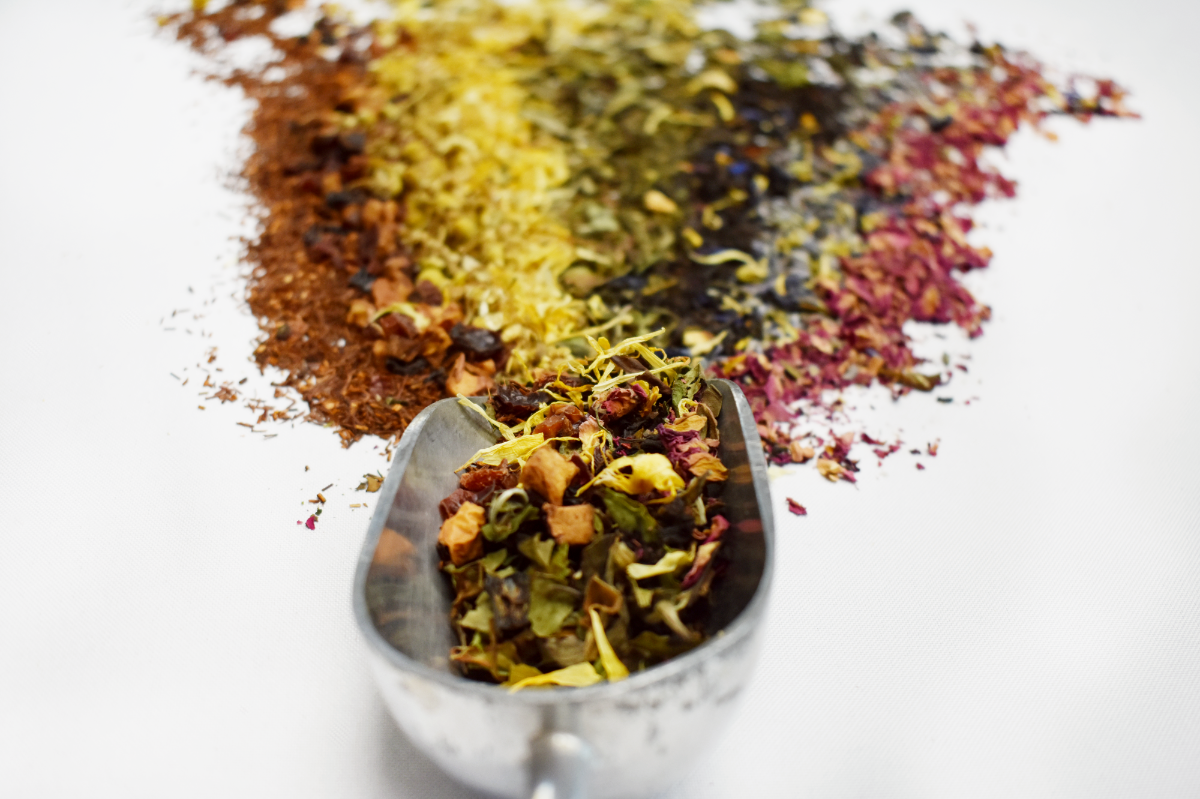Tea to Coffee: A Guide to Caffeine Levels and Their Effects
When it comes to choosing your daily brew, caffeine level is often a deciding factor. Some of us want a gentle nudge into the morning, while others need a full jolt of energy. Whether you're sipping on a soothing herbal tea or powering through your day with an espresso shot, understanding caffeine levels in your favorite drinks can help you make smarter, more balanced choices.
In this guide, we’ll break down popular teas and coffees by caffeine content — starting from the lowest to the highest — and explore their effects on your body.

Herbal Tea Caffeine Level
Herbal Tea is naturally caffeine free. If you are looking to steer clear of the effects of caffeine, giving your body a break, or looking for something to enjoy in the evening, herbal tea is the perfect choice. We carry a large selection of herabl teas at Passport with varrying positive benefits.
White Tea Caffeine Level (15–30 mg per cup)
White tea holds the lowest amount of caffiene found in tea.
White tea is one of the least processed tea types and offers a subtle, floral flavor with the lowest caffeine content of common teas.
Consuming white tea may lead to a mild energy lift. It is less likely to cause jitters and rich in antioxidants
Green Tea Caffeine Level (20–45 mg per cup)
Green tea contains a light to moderate amount of caffeine (20-45 mg per cup.) Green tea contains slightly more caffeine than white tea, but it’s still on the low end. It also contains L-theanine, an amino acid that promotes calm focus. Green tea may give you a steady energy without a crash. It is known to enhance brain function and focus. Green tea is often used for mindfulness or productivity.Great for a mid-morning pick-me-up or focus without overstimulation.
Oolong Tea Caffeine Level (30–50 mg per cup)
Oolong tea holds a moderate level of caffeine. Oolong is semi-oxidized, placing it between green and black tea in both flavor and caffeine. It has a smooth, slightly sweet taste and balanced energy boost. This typically creates a moderate energy increase. Oolong tean may aid in digestion and metabolism. It is known to reduce stress with regular use. This makes it a great tean for afternoon sipping or a gentler alternative to coffee.
Black Tea Caffeine Level (40–70 mg per cup)
Black tea has a higher caffeine level than most other teas. With bold and robust flavor, black tea is the go-to choice for those wanting more of a caffeine kick. Without delving into coffee. Think English Breakfast, Earl Grey, or Assam. Black tea will give you a noticeable alertness. It may cause jitteriness in caffeine-sensitive people. Black tea contains theanine for smoother energy compared to coffee, making it great for mornings or as a coffee substitute.
Yerba Mate Cffeine Level (65–85 mg per cup)
Yerba Mate conatins caffeine levels comparable to coffee. Although it is technically an herbal tea, yerba mate is not caffeine-free. It contains mateine (a caffeine-like stimulant), and is very popular in South America. This typically leads to increased physical and mental energy. It can boost metabolism and suppress appetite as well. Yerba Mate is stronger than black tea, and less acidic than coffee. This makes it a great choise for workout fuel or mental stamina.
Coffee Caffeine Levels(70–120 mg per 8 oz cup)
Coffee contains a high level of caffine no matter how it is prepared.
The caffeine content of coffee depends on the bean, the brew the method, and the strength. Generally speaking :
Brewed coffee (drip or pour over): ~95 mg per 8 oz
Espresso (1 oz): ~63 mg (but stronger per ounce!)
Cold brew: ~100–200 mg per 8–12 oz, depending on brew time
Drinking coffee typically results in a rapid energy spike, as well as increased alertness and focus. Consumption may cause jitters or crashes in sensitive individuals. Coffee is a long standing and largley accpeted first choise drink for mornings, intense work sessions, or pre-workout boosts.
Caffeine Level & Effect Recap
Beverage Avg. Caffeine (8 oz)Common Effects:
White Tea 15–30 mg
Gentle focus, low stimulation
Green Tea 20–45 mg
Calm energy, enhanced focus
Oolong Tea 30–50 mg
Balanced alertness, smoother buzz
Black Tea 40–70 mg
Bold energy, possible mild jitters
Yerba Mate 65–85 mg
Strong focus, appetite suppressant
Coffee 70–120+ mg
Fast alertness, jitter risk
Things to Consider
Caffeine sensitivity varies from person to person
Pregnant individuals should limit caffeine intake (~200 mg/day recommended)
Hydration is key — caffeine is mildly dehydrating
Watch for hidden caffeine in chocolate, energy drinks, and supplements.
Whether you’re easing into the day with green tea or tackling deadlines with a bold cup of coffee, caffeine can be your ally, when used mindfully. Understanding the caffeine level in your favorite beverages helps you control your energy levels, avoid crashes, and choose drinks that match your mood, schedule & lifestyle.
Explore our full range of teas and coffees to find the perfect drink for you!




